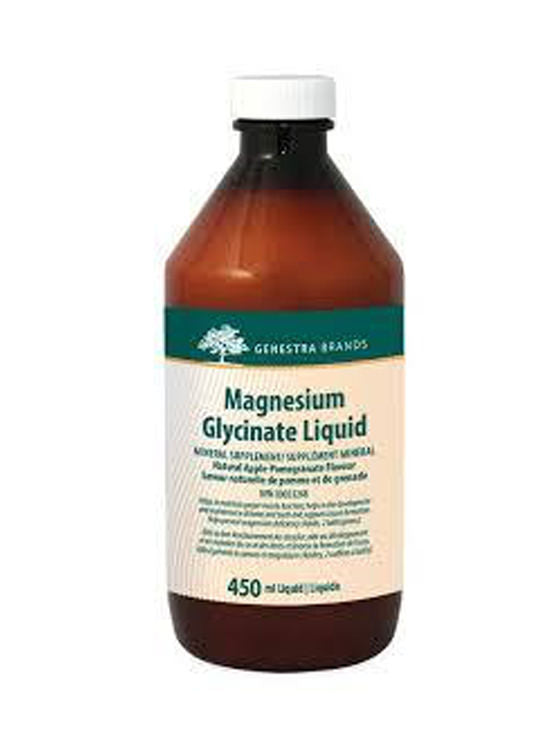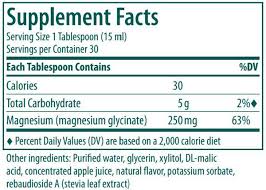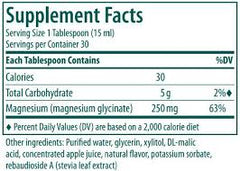



Magnesium Glycinate Liquid
- 44.99$
0.00$- 44.99$
- Unit price
- per
Description
x- Magnesium Glycinate Formula
- Helps maintain good muscle function
- Helps metabolize carbohydrates, proteins and fats
- Magnesium glycinate is a gentle form of magnesium that is less likely to cause loose stools
- Promotes the development and maintenance of bones and teeth
- Helps prevent magnesium deficiency (adults, 2 tablespoons)
Magnesium is a cofactor in over 300 metabolic reactions. It is involved in maintaining muscle function and contractions, among several other important physiological roles. Magnesium helps maintain bone health by regulating the production of parathyroid hormone (PTH) and calcitriol, which helps increase calcium absorption and minimize the risk of calcium deficiency. In the United States, it is estimated that approximately 64% of men and 67% of women do not consume enough magnesium, with the number even higher among older adults. Magnesium glycinate (also known as magnesium bisglycinate) is a highly water-soluble amino acid chelate composed of magnesium and two glycine molecules. Clinical evidence indicates that the bioavailability of magnesium glycinate is considerably higher compared to magnesium oxide and that it is less likely to cause a laxative effect. Magnesium glycinate supplementation has been shown to reduce the severity of muscle cramps: In a clinical trial of 86 healthy pregnant women with recurrent muscle cramps, supplementing with 300 mg of magnesium glycinate for 4 weeks reduced both the frequency and intensity of leg cramps.
Produits recommandés
Produits récemment consultés
- Choosing a selection results in a full page refresh.



